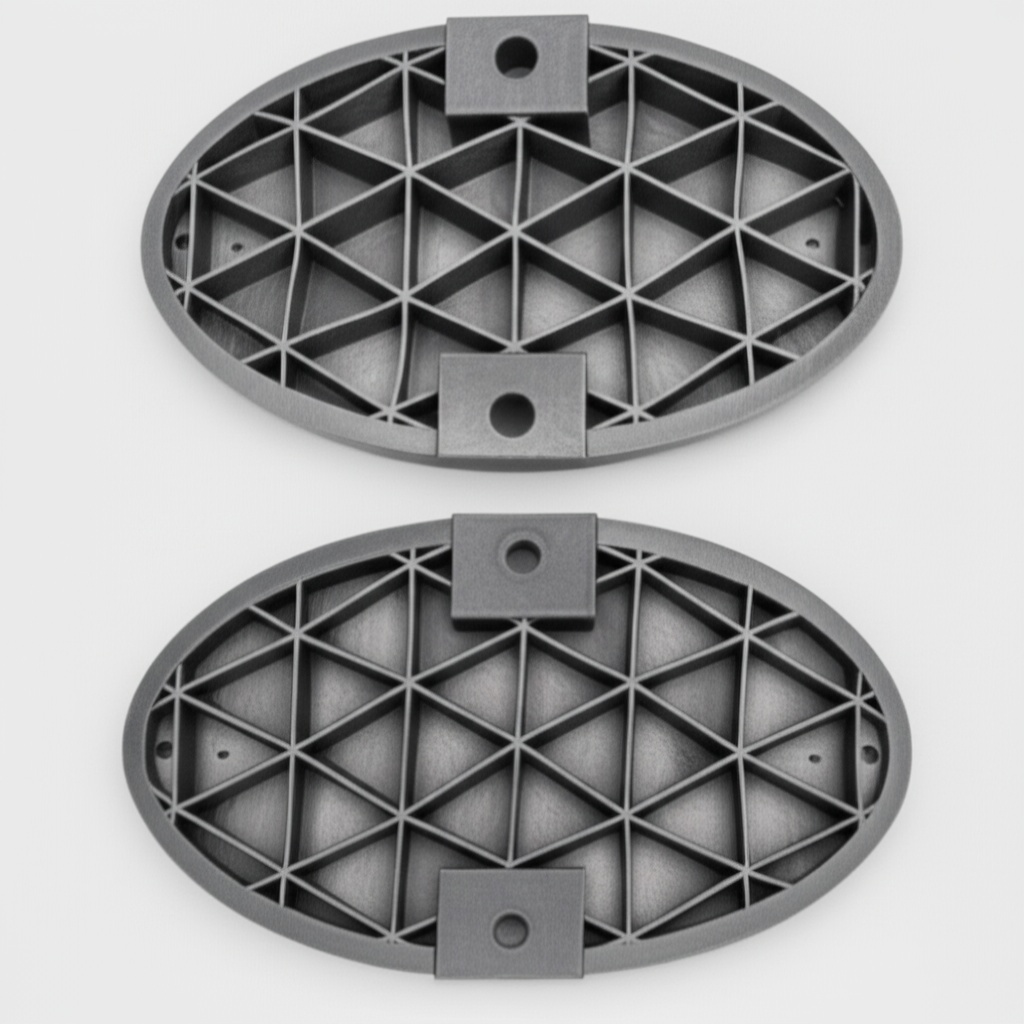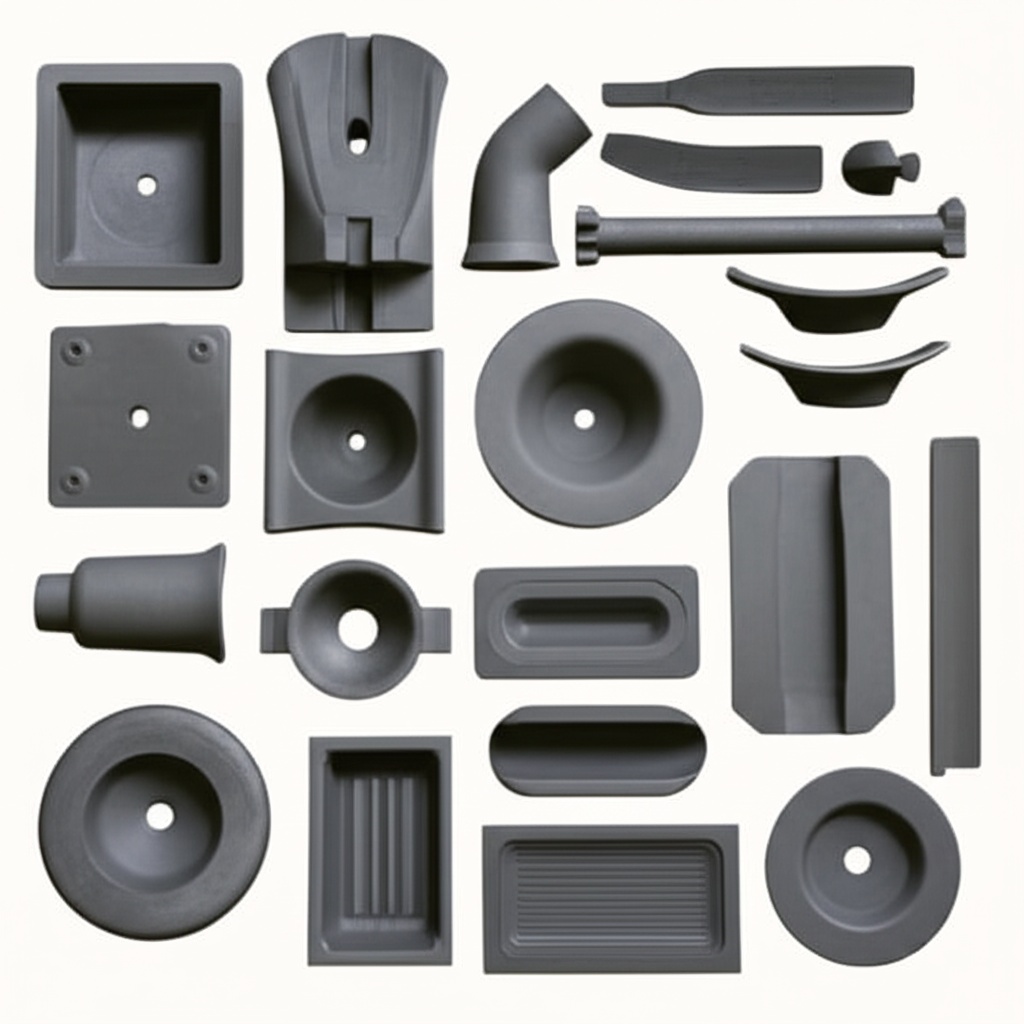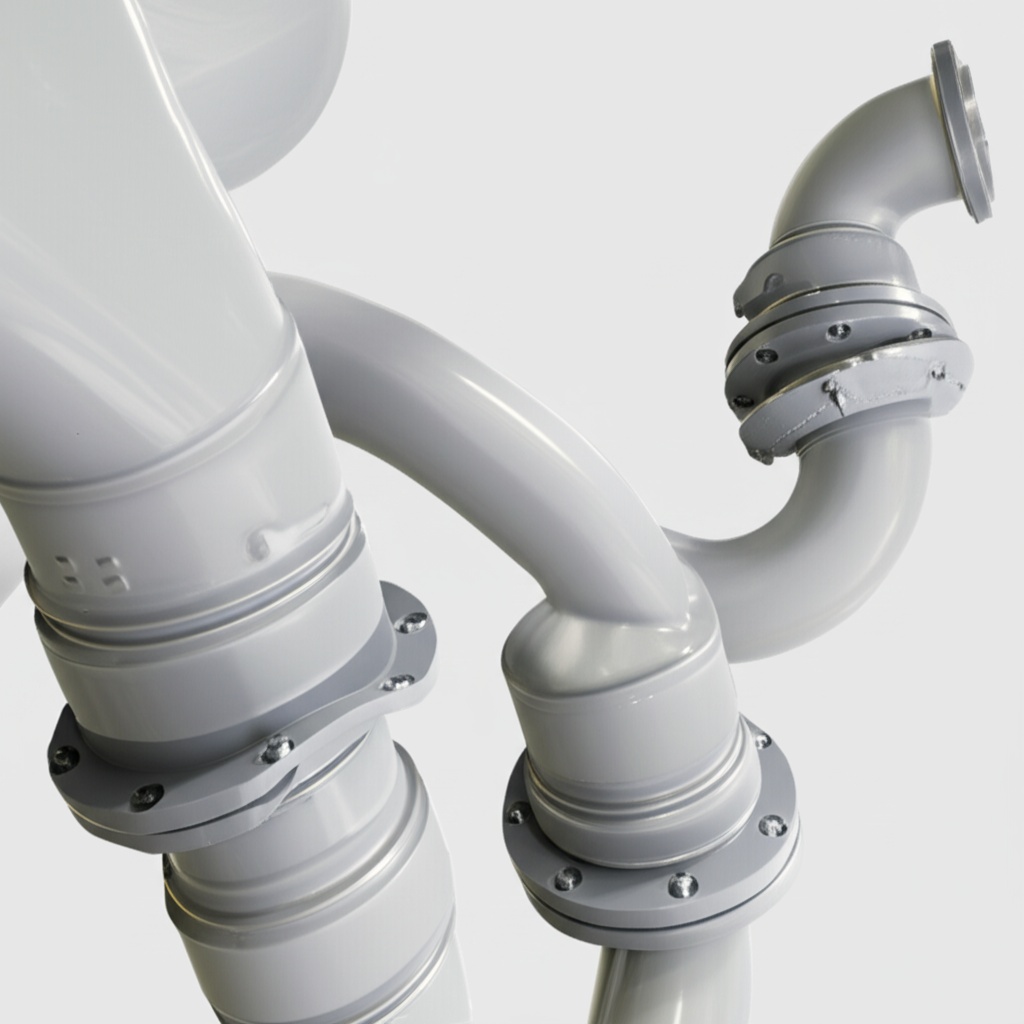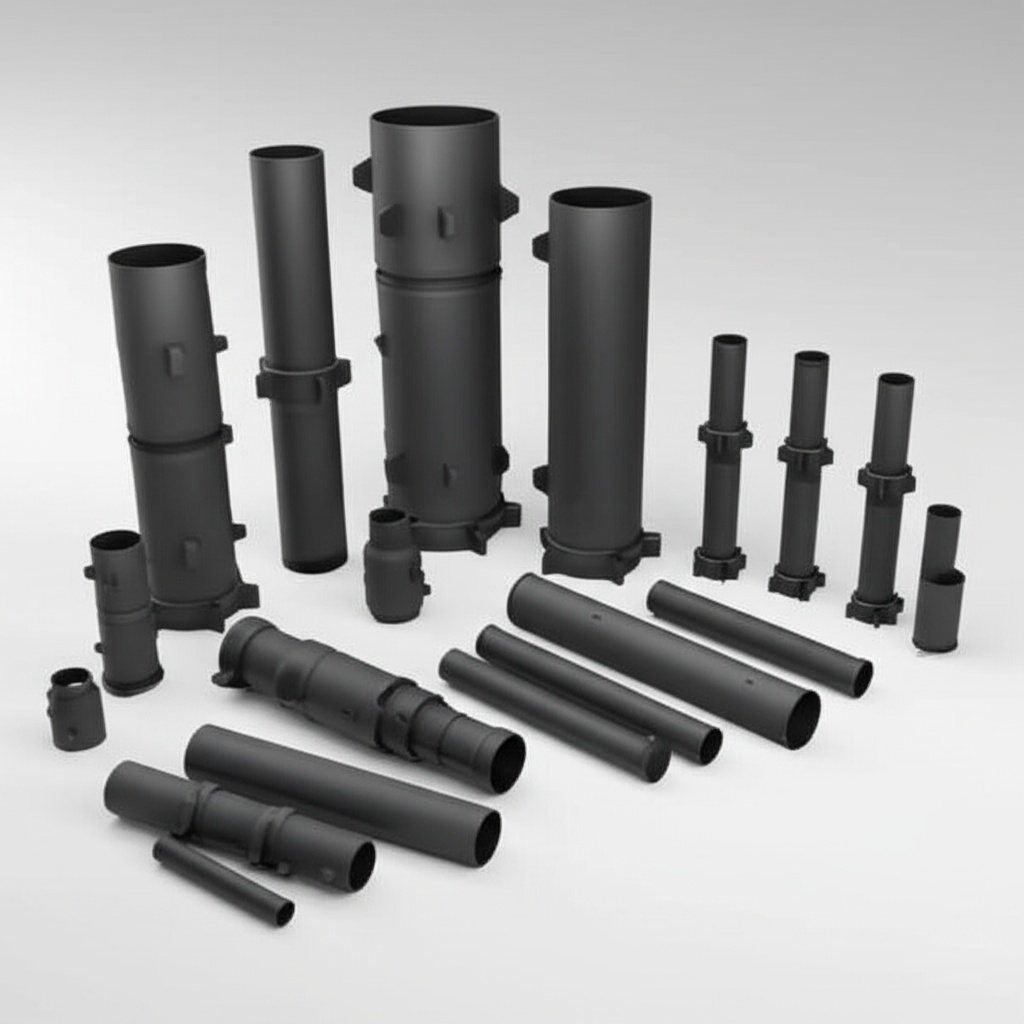Key SiC Suppliers to Connect with in Malaysia

Share
Key SiC Suppliers to Connect with in Malaysia
In the rapidly evolving landscape of advanced materials, silicon carbide (SiC) stands out as a critical enabling technology. Its exceptional properties, including superior hardness, high thermal conductivity, and excellent chemical resistance, make it indispensable for demanding applications across a multitude of industries. For engineers, procurement managers, and technical buyers seeking reliable sources for custom silicon carbide products, identifying the right silicon carbide suppliers in Malaysia is paramount.
This comprehensive guide delves into the world of SiC, focusing on its applications, the benefits of custom solutions, and key considerations for sourcing high-quality technical ceramics for your industrial needs.
What are Custom Silicon Carbide Products and Why are They Essential?
Custom silicon carbide products are components and equipment precisely engineered from SiC to meet specific performance requirements and geometric designs for particular applications. Unlike off-the-shelf solutions, custom SiC parts offer unparalleled precision, optimized performance, and integration into complex systems.
These advanced technical ceramic solutions are essential in high-performance industrial applications where conventional materials fall short. Their ability to withstand extreme temperatures, resist wear and corrosion, and maintain mechanical integrity under harsh conditions makes them invaluable.
Main Applications of Silicon Carbide Across Industries
The versatility of SiC makes it a material of choice across a broad spectrum of critical industries. Its unique properties enable breakthrough innovations and enhanced efficiency.
- Semiconductor Manufacturing: SiC is vital for wafer processing equipment, susceptors, and various components requiring high purity and thermal stability.
- Automotive Companies: Used in power electronics for electric vehicles (EVs) and hybrid electric vehicles (HEVs), brake discs, and other wear-resistant parts.
- Aerospace Companies: For lightweight, high-temperature components in engines, braking systems, and thermal management.
- Power Electronics Manufacturers: Enabling more efficient and compact power modules, inverters, and converters due to SiC’s superior electronic properties.
- Renewable Energy Companies: Integral to solar inverters, wind turbine converters, and energy storage systems for enhanced efficiency and reliability.
- Metallurgical Companies: Used in high-temperature furnace components, crucibles, and wear-resistant linings.
- Defense Contractors: For lightweight armor, missile components, and high-temperature engine parts.
- Chemical Processing Companies: In pump seals, valves, and heat exchangers due to its excellent corrosion resistance.
- LED Manufacturers: As substrates for high-brightness LEDs.
- Industrial Equipment Manufacturers: For bearings, seals, nozzles, and grinding media requiring extreme wear resistance.
- Telecommunications Companies: In high-frequency communication devices and power amplifiers.
- Oil and Gas Companies: For downhole tools, seals, and pump components in corrosive and abrasive environments.
- Medical Device Manufacturers: In specialized instruments and prosthetics due to its biocompatibility and hardness.
- Rail Transportation Companies: For braking systems and high-wear components.
- Nuclear Energy Companies: In fuel cladding and structural components due to its radiation resistance and high-temperature stability.
Why Choose Custom Silicon Carbide? Advantages of Customization
Opting for custom silicon carbide solutions offers distinct advantages over standard components, ensuring optimal performance and cost-effectiveness for specific applications.
- Optimized Performance: Custom designs can perfectly match the thermal, mechanical, and electrical requirements of your application, leading to superior efficiency and longevity.
- Enhanced Thermal Resistance: SiC maintains its strength and integrity at temperatures exceeding 1,000°C, making it ideal for extreme heat environments.
- Superior Wear Resistance: Its exceptional hardness translates to outstanding resistance against abrasion and erosion, extending component lifespan in harsh conditions.
- Excellent Chemical Inertness: SiC is highly resistant to most acids, bases, and corrosive chemicals, ensuring durability in aggressive chemical processing environments.
- Precision Fit and Functionality: Customization allows for exact dimensions and features, reducing assembly time and improving overall system reliability.
- Reduced Material Waste: Designing parts specifically for your needs can minimize material waste during manufacturing, contributing to cost efficiency.
Recommended SiC Grades and Compositions for Industrial Applications
Silicon carbide exists in various forms, each offering a unique combination of properties suitable for different industrial applications. Choosing the right grade is crucial for performance and cost-efficiency.
| SiC Grade/Type | Key Properties | Typical Applications |
|---|---|---|
| Reaction-Bonded SiC (RBSC) | High strength, excellent wear resistance, good thermal conductivity, no shrinkage during sintering. | Kiln furniture, pump components, wear plates, mechanical seals. |
| Sintered SiC (SSiC) | Extremely hard, highest corrosion resistance, high strength at elevated temperatures, high thermal conductivity. | Mechanical seals, bearings, nozzles, pump parts, semiconductor equipment. |
| Nitride-Bonded SiC (NBSC) | Good strength, excellent thermal shock resistance, good chemical resistance. | Furnace linings, kiln supports, wear parts, refractory bricks. |
| Recrystallized SiC (ReSiC) | High purity, good thermal shock resistance, low density. | High-temperature furnace elements, semiconductor equipment. |
| Hot-Pressed SiC (HPSiC) | Very high density, excellent strength and hardness. | Cutting tools, armor, high-performance wear parts. |
Design Considerations for Custom SiC Products
Effective design is the cornerstone of successful custom silicon carbide manufacturing. Collaborating closely with your SiC supplier during the design phase can significantly impact the final product’s performance and manufacturability.
- Geometry Limits: SiC is hard and brittle, making complex geometries challenging. Consider simpler designs where possible to optimize manufacturing and reduce costs.
- Wall Thickness: Aim for uniform wall thicknesses to minimize internal stresses during processing and firing, which can lead to warping or cracking.
- Stress Points: Identify and mitigate potential stress concentration points. Sharp corners and sudden changes in cross-section should be avoided or radiused appropriately.
- Mounting Features: Design robust mounting features that can withstand the operational loads without compromising the integrity of the SiC component.
- Material Homogeneity: Ensure the design promotes uniform material distribution and density throughout the part.
- Machinability: While SiC is extremely hard after firing, consider the feasibility of pre-sintered machining to achieve tighter tolerances and complex shapes.
Tolerance, Surface Finish & Dimensional Accuracy for SiC
Achieving precise tolerances and optimal surface finishes is critical for the functionality of custom SiC components, especially in applications requiring high wear resistance or sealing capabilities.
- Achievable Tolerances: While SiC is difficult to machine post-sintering, advanced grinding and lapping techniques can achieve tight tolerances, typically in the range of microns.
- Surface Finish Options: Depending on the application, surface finishes can range from rough as-fired surfaces to highly polished, near-mirror finishes. Lapping and polishing are common post-processing steps.
- Dimensional Accuracy: High dimensional accuracy is crucial for component fit and performance. Suppliers utilize advanced metrology to ensure parts meet specifications.
Post-Processing Needs for Enhanced SiC Performance
After initial manufacturing, custom SiC products often undergo various post-processing steps to enhance their performance, durability, and functionality.
- Grinding: Precision grinding is essential for achieving tight dimensional tolerances and desired surface finishes.
- Lapping & Polishing: These processes create extremely smooth surfaces, crucial for sealing applications, bearings, and components in contact with other moving parts.
- Sealing: For porous SiC grades, sealing might be applied to enhance impermeability, especially in vacuum or liquid handling applications.
- Coating: Specific coatings (e.g., hard coatings, anti-corrosion layers) can be applied to further enhance wear resistance, chemical inertness, or electrical properties.
- Brazing & Joining: SiC components can be brazed or joined to other materials (metals, other ceramics) to create complex assemblies.
Common Challenges and How to Overcome Them in SiC Manufacturing
While SiC offers numerous advantages, its unique properties present certain manufacturing challenges that experienced suppliers are adept at overcoming.
- Brittleness: SiC is inherently brittle, requiring careful handling during manufacturing and assembly to prevent chipping or cracking.
- Machining Complexity: Its extreme hardness makes post-sintering machining difficult and costly, necessitating specialized diamond tooling and techniques.
- Thermal Shock: While SiC has good thermal shock resistance, extreme and rapid temperature changes can still pose a risk, requiring careful design and material selection.
- Shrinkage During Sintering: Most SiC manufacturing processes involve high-temperature sintering, leading to predictable shrinkage that must be accounted for in the initial design.
- Cost: The raw materials and specialized manufacturing processes for SiC can make initial costs higher than conventional materials, though the extended lifespan and performance often justify the investment.
How to Choose the Right Silicon Carbide Supplier
Selecting the ideal silicon carbide supplier is critical for the success of your project. A reliable partner will possess the technical expertise, manufacturing capabilities, and quality assurances to meet your exacting standards.
- Technical Capabilities & Expertise: Evaluate their engineering team’s knowledge of SiC materials, design for manufacturability, and problem-solving abilities.
- Material Options: Ensure they offer a wide range of SiC grades and can recommend the most suitable composition for your application.
- Manufacturing Processes: Inquire about their production methods (e.g., reaction bonding, sintering, hot pressing) and their ability to achieve desired tolerances and finishes.
- Quality Control & Certifications: Look for ISO certifications and robust quality management systems to ensure consistent product quality.
- Customization Support: A strong supplier will offer comprehensive customization support, from initial design consultation to post-processing.
- Production Capacity & Lead Time: Verify their ability to meet your volume requirements and deliver within your project timelines.
- Industry Experience: Choose a supplier with a proven track record in your specific industry (e.g., semiconductors, aerospace, power electronics).
When considering silicon carbide suppliers in Malaysia or elsewhere, it’s worth noting global leaders in the field. For instance, the hub of China’s silicon carbide customizable parts manufacturing is situated in Weifang City of China. This region has become home to over 40 silicon carbide production enterprises of various sizes, collectively accounting for more than 80% of the nation’s total silicon carbide output.
We, Sicarb Tech, have been instrumental in the growth of this industry. Since 2015, we have been introducing and implementing advanced silicon carbide production technology, assisting local enterprises in achieving large-scale production and significant technological advancements in product processes. We have witnessed firsthand the emergence and ongoing development of the local silicon carbide industry.
As part of Chinese Academy of Sciences (Weifang) Innovation Park, which collaborates closely with the National Technology Transfer Center of the Chinese Academy of Sciences, Sicarb Tech operates as a national-level innovation and entrepreneurship service platform. We integrate innovation, entrepreneurship, technology transfer, venture capital, incubation, acceleration, and scientific and technological services.
Sicarb Tech capitalizes on the robust scientific, technological capabilities and talent pool of the Chinese Academy of Sciences . Backed by the Chinese Academy of Sciences National Technology Transfer Center, we serve as a bridge, facilitating the integration and collaboration of crucial elements in the transfer and commercialization of scientific and technological achievements. Moreover, we have established a comprehensive service ecosystem that spans the entire spectrum of the technology transfer and transformation process, ensuring more reliable quality and supply assurance within China.
Our team at Sicarb Tech comprises a domestic top-tier professional team specializing in customized production of silicon carbide products. Under our support, 452+ local enterprises have benefited from our technologies. We possess a wide array of technologies, such as material, process, design, measurement & evaluation technologies, along with the integrated process from materials to products. This extensive capability enables us to meet diverse customization needs. We are confident in our ability to offer you higher-quality, cost-competitive customized silicon carbide components from China. Explore our successful case studies to see our expertise in action.
Furthermore, we are committed to assisting you in establishing a specialized factory. If you need to build a professional silicon carbide products manufacturing plant in your country, Sicarb Tech can provide you with the technology transfer for professional silicon carbide production, along with a full-range of services (turnkey project) including factory design, procurement of specialized equipment, installation and commissioning, and trial production. This enables you to own a professional silicon carbide products manufacturing plant while ensuring a more effective investment, reliable technology transformation, and guaranteed input-output ratio. Feel free to contact us to discuss your specific requirements.
Cost Drivers and Lead Time Considerations for SiC Components
Understanding the factors that influence the cost and lead time of custom silicon carbide components is crucial for effective project planning and budgeting.
| Cost Driver | Impact |
|---|---|
| Material Grade & Purity | Higher purity and specialized SiC grades (e.g., SSiC for extreme applications) typically command higher prices. |
| Component Complexity | Intricate geometries, thin walls, and tight tolerances require more advanced manufacturing techniques and machining, increasing cost. |
| Size & Volume | Larger components require more raw material and processing time. Higher volumes can benefit from economies of scale. |
| Surface Finish Requirements | Lapping and polishing for very smooth surfaces add significant processing time and cost. |
| Post-Processing Needs | Additional steps like special coatings, precision grinding, or complex assemblies contribute to the overall cost. |
| Tooling Costs | For highly customized parts, one-time tooling costs for molds or specialized fixtures may be incurred. |
Lead Time Considerations: Lead times for custom SiC products can vary significantly based on design complexity, material availability, manufacturing capacity, and the extent of post-processing. It’s essential to communicate your project timelines clearly with your chosen supplier early in the process.
Frequently Asked Questions (FAQ) about Silicon Carbide
Q1: What are the primary advantages of using SiC over other technical ceramics like alumina or zirconia?
A: Silicon carbide offers superior thermal conductivity, higher hardness, and better chemical resistance at elevated temperatures compared to alumina or zirconia. While other ceramics have their strengths, SiC excels in applications requiring extreme wear resistance, high thermal shock resistance, and performance in aggressive chemical environments, especially at high temperatures.
Q2: Can silicon carbide components be machined to very tight tolerances?
A: Yes, while SiC is extremely hard in its fully dense state, it can be precision machined using specialized diamond grinding and lapping techniques. Experienced manufacturers can achieve very tight dimensional tolerances and exceptionally smooth surface finishes, often down to sub-micron levels, depending on the specific application requirements.
Q3: Is SiC electrically conductive or insulating?
A: Silicon carbide can be either electrically conductive or insulating, depending on its purity and doping. High-purity, undoped SiC is an excellent electrical insulator. However, by introducing specific dopants during manufacturing, SiC can be made semiconducting, which is why it’s a foundational material for power electronics and high-temperature semiconductor devices.
Conclusion
The demand for custom silicon carbide products continues to surge across diverse industrial sectors, driven by the need for materials that can withstand increasingly harsh operating conditions and enable higher efficiency. From semiconductor manufacturing to aerospace and renewable energy, SiC’s unparalleled properties make it an indispensable material for advanced components and equipment.
By understanding the different grades, design considerations, and the importance of selecting a capable silicon carbide supplier, engineers and procurement managers can unlock the full potential of this remarkable technical ceramic. Partnering with a knowledgeable and experienced manufacturer, such as Sicarb Tech, ensures access to high-quality, customized SiC solutions that drive innovation and performance in your demanding applications. For more information about us, please visit our About Us page.

About the Author: Sicarb Tech
We provide clear and reliable insights into silicon carbide materials, component manufacturing, application technologies, and global market trends. Our content reflects industry expertise, practical experience, and a commitment to helping readers understand the evolving SiC landscape.




